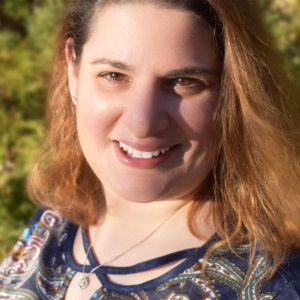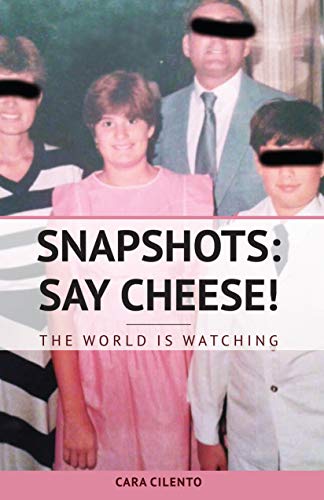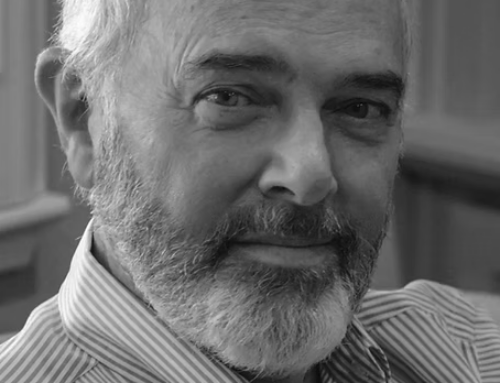 Cara Cilento grew up in a small suburban North Jersey town. Her family of origin did not. Her parents came from urban North Jersey. Cara’s grandparents were immigrants from Italy and first generation transplants from Newark, NJ. They were a close knit family which pushed success: academic and personal. Most of all, they pushed assimilation.
Cara Cilento grew up in a small suburban North Jersey town. Her family of origin did not. Her parents came from urban North Jersey. Cara’s grandparents were immigrants from Italy and first generation transplants from Newark, NJ. They were a close knit family which pushed success: academic and personal. Most of all, they pushed assimilation.
Cara Cilento is a divorced mother of two boys. She has been a speech therapist for twenty-two years in the public schools. She lives in suburban North Jersey on her terms. She defines her own personal success as living her truth and not what is expected of her. Snapshots is her first work. She has taken a lifetime of experiences; traumatic, joyful, abusive, healing and reaffirming, as her muse.
Tell us about your book.
Snapshots is about living a life unseen. It’s about blindly following a predetermined course built by culture, society and doctrine. It’s about emerging victorious over the cycle of assumed truths and breaking it when faced with the opportunity to perpetuate it. Specifically, Snapshots is about growing up in a close knit suburb where there is significant familial and social pressure to fit the mold. What would happen if if someone didn’t? What if she was a lesbian? Did she conform? Become unseen? Rebel? To what lengths does one go to be accepted into the fold? Snapshots details through photograph, poetry and prose those struggles.
Snapshots also explores a more intimate legacy, one that is relatable to most women. It explores the legacy a mother leaves with her daughter implicitly and explicitly. If a daughter models what she sees, what happens when the model is dysfunctional? Hypocritical? Yet expecting success and social assimilation? Snapshots describes what daughters saw at home conflict with the desire to break free of cultural expectations.
Finally, Snapshots culminates into self acceptance. It expresses a victory over social pressure yet establishes a peace through what links women together: our ability to persevere, our ability to mother, our ability to be culturally engaged without sacrificing ourselves. Snapshots asks and ultimately asks the question, “Who would you become if the world is watching?”
Why did you want to write a book?
Even as a young child I was always conjuring up stories and filling them with colorful characters, sharing them with anyone and everyone who would listen. Since then, I’ve progressed quite a bit to formulating longer and more complex stories and sharing them with much larger audiences.
As a professional storyteller, I’m adept at using my imaginative thinking and creative flair to bring my stories to life in engaging and entertaining ways. I wanted to use those talents to speak to the people who believe they are unseen. I wanted to validate the feelings they may have and make the audience think about how their implicit or explicit actions could effect someone without realizing it. I wanted to relate to others who may not feel they have a voice and let them into my journey of finding mine.
Why did you choose to self-publish?
Self-publishing allows me to have control over my creative expression. With Snapshots I designed the cover, wrote the content, chose the layout of the pictures so I could have a true representation of the story I was telling. I didn’t want to sacrifice any part of this book and be forced to make decisions I was not happy with under the advice of company. I didn’t want to be bound by contracts. To me, especially with this book, where the message is about achieving empowerment, how could I surrender my own to an outside agency? It would be hypocritical.
I would absolutely self-publish again. There is a feeling of pride I get when I finish a project and know I created it from top to bottom. The rights belong to me. I can interact with my book any way I see fit. Art is made to be interactive. If, as authors, we paint with words then there needs to be a interactive living quality to each publication we produce. I don’t see how using an agency in some instances support that.
What do you think are the main pitfalls for indie writers?
I think the main pitfall stems from not knowing your target audience. Without knowing your audience you can not market appropriately. You don’t want to market a book to people who have no interest. It is a waste of resources.You need to research! You need to strategize! Make a plan and don’t stop because it all counts.
How do you deal with writer’s block?
In a sentence, writer’s block stinks. Usually, I get writer’s block when I am not relaxed or I am in a tense state of mind. I recenter myself by doing things that are fun. I call friends or go out and change my scenery. Personally, thinking “How do I get rid of this writer’s block?” only focuses on it and gives it more power over your process. You are actively in engaging with what is holding you back rather than letting it go.
Who are your biggest writing inspirations and why?
Honestly? My biggest inspirations are my family, friends and my girlfriend, April. Without their encouragement and influence, I may not continued to write. I would like to say someone famous or tell you someone took me under their wing to fuel my creativity but my road to writing didn’t go that way. Actually, I butted heads with a lot of established authors when I was younger. Maybe that inspired me too. (laugh)
You mentioned that you designed the cover of your book. Can you explain why you chose to do that?
Sure. I wanted Snapshots to be expressive in its totality. The cover, a family posing together where all the family member’s eyes have been blacked out except for the young girl’s, what a dramatic commentary on how the speaker felt unseen for who she was. It is also meant to minimize the speaker’s past and draw the reader’s attention to her. It forces her to become “seen.”
What did you learn on your journey as an author?
I learned how to overcome the fear of writing with vulnerability. Being vulnerable to your writing process allows you to open up to so many great ideas and stories you hold inside. It was Frank Herbert, in his work Dune, who said, “Fear is the mind killer.” That is so true.
What’s next for you as an author?
Write another book of course! I have already started and I am really excited about it. It takes my writing in a completely new direction. It is a humorous look at the thoughts of a young teacher. In the interim, I will be doing readings and and enjoying the process of creating.
Author Links
Get an Editorial Review | Get Amazon Sales & Reviews | Get Edited | Get Beta Readers | Enter the SPR Book Awards | Other Marketing Services























Leave A Comment